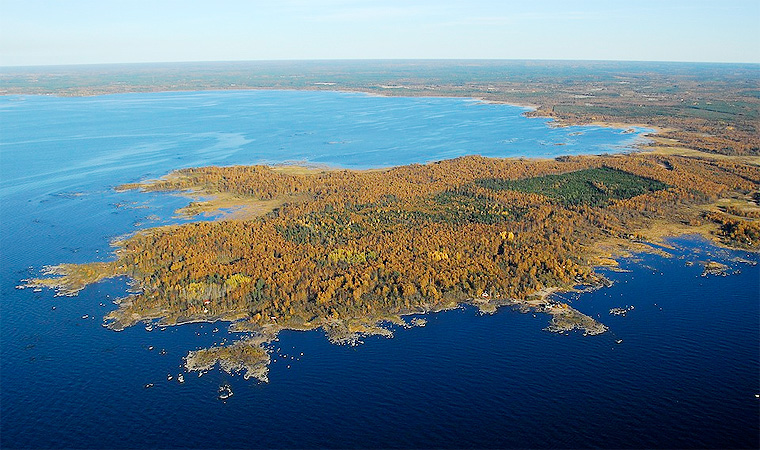
Short News
back to contentsThe Hanhikivi-1 NPP Russian project construction in Finland gains speed. Fennovoima has started new environmental impact assessment, noting that the reactor type will be VVER-1200. The previous EIA was meant for building of one or two units with other technologies. As they said in Fennovoima, the company has already submitted the program to the Ministry of Employment and the Economy with preliminary design characteristics of the NPP offered by Rosatom.
Russia is planning to develop it cooperation with India in all directions, including nuclear energy, said the PM of Russia Dmitry Medvedev at the meeting of the General Assembly of the Organization of Asia-Pacific News Agencies (OANA).
“You have mentioned Kudankulam. It seems to me that it is doing pretty well. There were several new agreements signed, during my visits as well, so I hope this cooperation will flourish further,” – said Medvedev. He emphasized that Russia and India have special partners’ relations. “We are interested in further development with India in all spheres, this is Russian government’s strategy, that’s why there constantly are meetings at the highest level”.
The Federal Service for Ecology, Technology and Atomic Energy of Russia (Rostechnadzor) and Hungary’s National Atomic Energy Committee are planning to prepare a cooperation agreement by the end of the year. It will take into consideration current changes at the nuclear market, resulted in the Fukushima catastrophe. Rostechnadzor has prepared its own version of the agreement and submitted it to the Hungarian agency.
Russia and Ukraine will sign a cooperation agreement in case of nuclear catastrophe, which also suggests exchanging information in the nuclear sphere. “In case of nuclear emergency at a reactor or while other operations in the nuclear sphere for peaceful purposes on a state’s territory, which results or may result in transboundary emission of radioactive substances to the other country’s territory, the country where the accident took place is to inform the other immediately”, – says the project text. Besides, in case one of the parties registers the fact of aggravation of radiation environment, the partner is to be duly informed with no delay. According to the document the parties will annually exchange information concerning safety of nuclear installments, however state secrets are no to be transmitted.
The Kola NPP in Zapolyarie was visited by the delegation of Norwegian Barents Secretariat with its head Rune Rafaelsen. The Norwegian Barents Secretariat aims at developing the Norwegian-Russian relations in the north by promoting and funding Norwegian-Russian cooperation projects. The visitors got acquainted with the level of the enterprise development, explained the pattern of activities for increasing the site safety. The specialists were also provided information on technical cooperation between Russia and Norway at the Kola NPP. The delegation visited the plant site and learnt about events at all Russian NPPs, including Kola, studying results of stress-tests after the events at Fukushima in March 2011. The guests highly appreciated the openness and availability of information provided and thanked the hosts.
In the Murmansk nuclear industry information center, located on board the legendary “Lenin” icebreaker, there was a meeting between the representatives of the Arctic region parliaments – Russia, Iceland, Canada, the USA, Finland, Norway, Sweden, where they learnt about capacities of the NSR (Northern Sea Route). The members of Atomflot gave a presentation on history, development and prospects of the route. The guests studied the materials with economical, ecological and technical characteristics with interest. At the end of the event the guests were given a tour over the first world’s icebreaker.
The contract for development of project and licensing documentation of the Ruppur NPP in Bangladesh may be signed by the end of 2013. The site is chosen, now the EIA exploratory studies are in progress. In November 2011 Russia and Bangladesh signed an intergovernmental agreement for cooperation in the construction of the first Bangladeshi NPP. The document suggests designing, building and putting into operation of two power units with 1000 MW VVER reactors at the Ruppur site (200 km from the capital of the country, Dhakka) along with construction of infrastructures.




